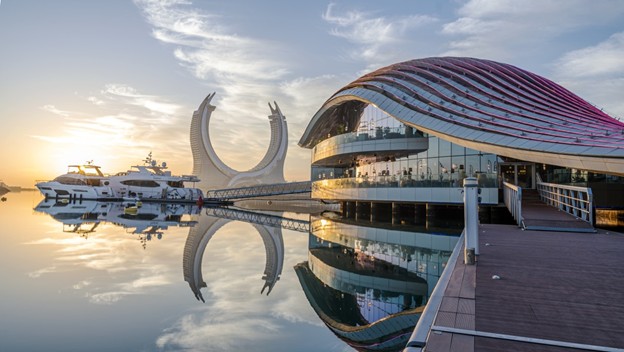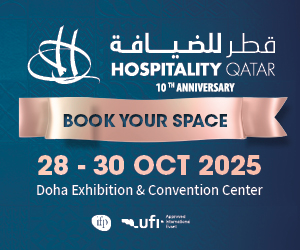Qatar’s hospitality industry continues to demonstrate resilience and steady growth, according to KPMG Qatar’s newly released Q2 2025 Hotel Performance Index (K-HPI).
Despite the absence of mega-events such as the FIFA World Cup, the index shows that hotel performance remains well above pre-pandemic levels. Using Q1 2019 as a baseline (Index = 100), the K-HPI tracks all accommodation types from 1-star hotels to 5-star properties, as well as deluxe and standard hotel apartments.
In Q2 2025, the index reached 118.8—marking an 18.8% increase over its pre-COVID benchmark. “This shows that Qatar’s tourism economy is becoming less dependent on rare mega-events and increasingly sustained by consistent regional demand and repeat visitors,” said Mariem Faridh, hospitality analyst at Gulf Hospitality Insights.
Following the COVID-19 downturn in 2020, the sector began a gradual recovery in 2021. The FIFA World Cup in Q4 2022 triggered a record spike to 314.0, reflecting unprecedented occupancy and rates. Although performance cooled in 2023, it rebounded in Q1 2024 to 139.9, boosted by the AFC Asian Cup and regional tourism. While slightly lower in Q2 2025, the index remains well above historical averages.
“The World Cup was a peak, but the sustained post-event performance is remarkable,” noted industry expert Marcus Delano. “A reading of 118.8 is healthy, and the trajectory remains positive.”
Analysts attribute the momentum not only to sports events but also to tourism diversification—ranging from medical tourism to business travel and cultural attractions. The Qatar National Tourism Council has launched targeted promotional campaigns in the GCC, Europe, and Asia-Pacific.
Mid-market hotels are also seeing consistent demand. “We’re observing steady growth among three- and four-star properties, especially in Lusail and Al Wakra. This indicates stronger mid-market travel, not just premium tourism,” Delano added.
KPMG forecasts that RevPAR (Revenue per Available Room) will rise in the second half of 2025, driven by upcoming events and increased MICE (Meetings, Incentives, Conferences, and Exhibitions) activity. The launch of new branded properties—particularly deluxe hotel apartments—is also shaping guest preferences.
“Guests are staying longer and seeking value-added experiences,” said hospitality trends consultant Dr. Layan Sharif. “Apartment hotels and blended service models are narrowing the gap between leisure and business travel.”
The latest K-HPI results point to a maturing hotel market with sustained growth, a more diverse guest profile, and a strengthened mid-tier segment. “Qatar’s hotel industry has learned to breathe on its own, and that’s the mark of a truly sustainable tourism economy,” Dr. Sharif concluded.
Source: The Peninsula













































































